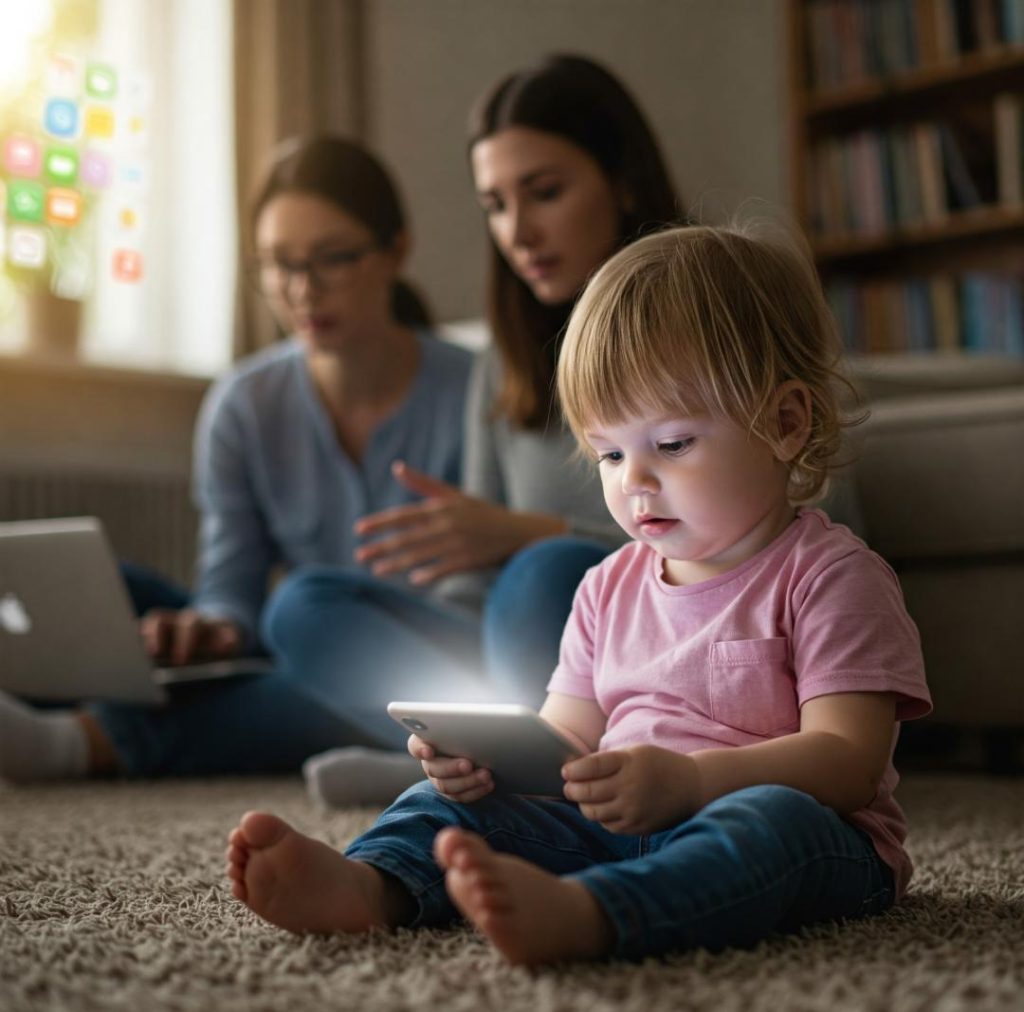
Parenting, Screens & Conditioning: A Digital Age Concern
In today’s digital age, the role of parents has become more challenging than ever. With the rise of smartphones, tablets, and social media, children are constantly exposed to a world of information, entertainment, and distractions. The latest incident in Jammu & Kashmir, where a child was found watching adult content on YouTube despite being in restricted mode, has raised concerns about poor screen regulation and lack of parental interaction. As parents, it is our responsibility to ensure that our children are not only aware of the digital world but also equipped to navigate it safely and responsibly.
The concept of classical conditioning, introduced by Ivan Pavlov, can help us understand how our children’s behavior is shaped by their environment. In simple terms, classical conditioning is the process by which we associate certain stimuli with specific responses. For instance, if a child is consistently rewarded with praise or attention for completing their homework, they may learn to associate homework with positive reinforcement.
In the context of smartphone addiction, classical conditioning can play a significant role. When children are exposed to screens at a young age, they may begin to associate the glow of the screen with relaxation, entertainment, or social interaction. Over time, this association can lead to a conditioned response, where children reach for their devices as a default coping mechanism whenever they feel bored, anxious, or stressed.
Mindful parenting can be a powerful tool in curbing this addiction. By being more aware of our own screen use and setting a good example for our children, we can help them develop healthier relationships with technology. This may involve setting screen-free zones and times, encouraging outdoor activities, and engaging in conversations with our children about the impact of screens on their lives.
Active involvement and emotional bonding are also key in shaping children’s behavior in today’s tech-driven world. When parents take the time to engage with their children, listen to their concerns, and validate their emotions, children are more likely to develop healthy coping mechanisms and a sense of self-worth. This emotional intelligence can help them navigate the challenges of social media and online interactions with confidence and resilience.
So, what can parents do to promote healthier screen use and reduce the risk of smartphone addiction in their children?
- Set a good example: Parents should model healthy screen behavior themselves, avoiding excessive screen use and setting screen-free times and zones.
- Establish screen-free zones: Designate screen-free areas in the home, such as the dinner table or bedrooms, to encourage other activities and promote social interaction.
- Encourage outdoor activities: Regular outdoor activities can help children develop a sense of adventure, improve their physical health, and reduce the likelihood of screen addiction.
- Monitor screen use: Use parental control software or apps to monitor screen use and set limits on screen time.
- Have open conversations: Talk to your children about the impact of screens on their lives, listening to their concerns and validating their emotions.
- Encourage creative play: Engage your children in creative activities, such as drawing, writing, or building, to promote problem-solving skills and imagination.
- Practice mindful parenting: Be aware of your own screen use and its impact on your children, making a conscious effort to model healthy screen behavior and prioritize face-to-face interaction.
In conclusion, the recent incident in Jammu & Kashmir highlights the urgent need for parents to take control of their children’s screen use and promote healthier relationships with technology. By understanding the concepts of classical conditioning and mindful parenting, we can empower our children to navigate the digital world with confidence and resilience. As parents, it is our responsibility to ensure that our children are not only aware of the digital world but also equipped to thrive in it.






